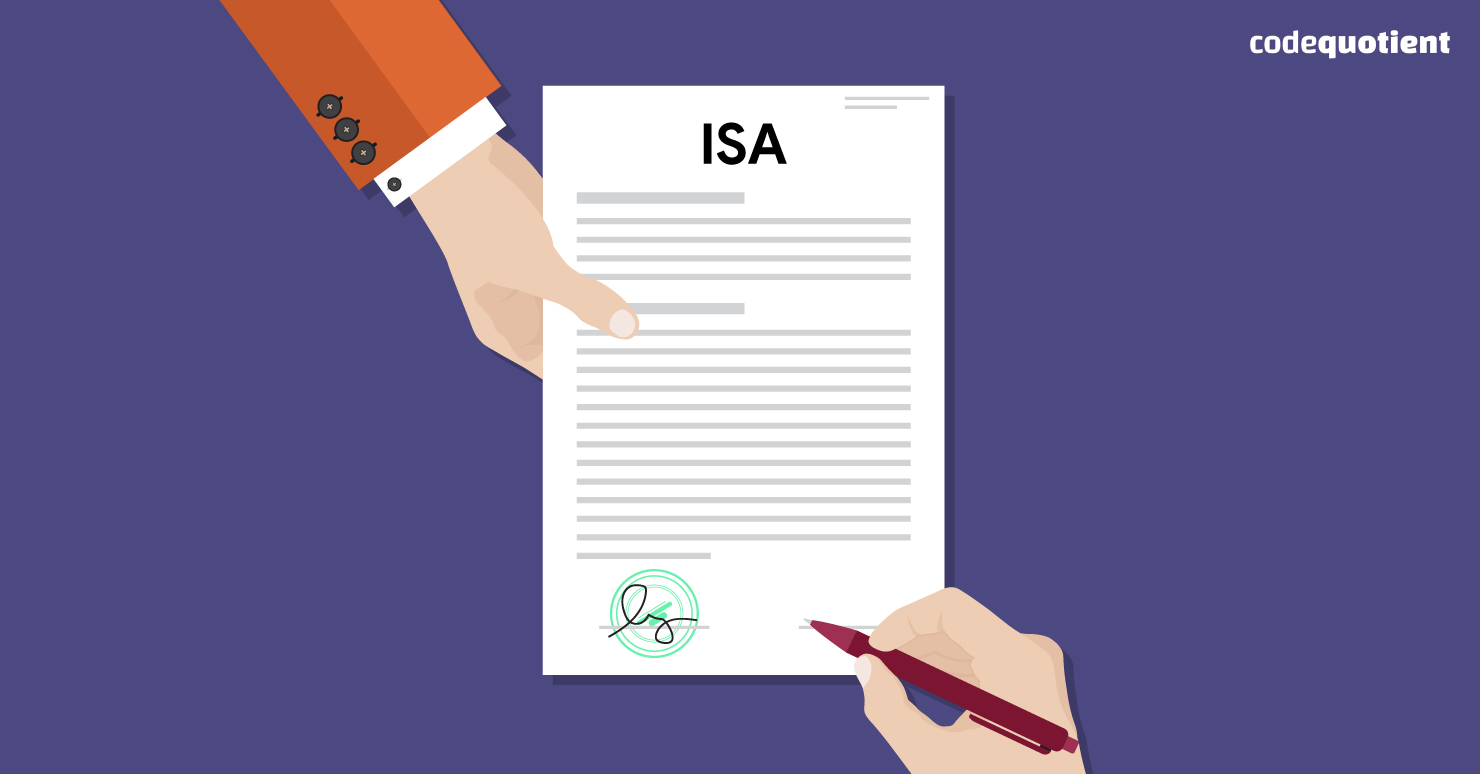Id The pandemic era has set the pace for signing income sharing agreements in the software development sector. By 2028, software developer jobs are expected to grow by 21% and application developers by 28%.
This optimistic data is enough to bait job seekers into signing an income share agreement (ISA) with any educational institute that promises to bolster their prospects. But this creative mode of education finance comes with its fair share of smartly hidden cons. It is a trap that needs to be avoided by all job seekers in the IT industry.
What is an ISA or Income Sharing Agreement?

An ISA is a private student loan, a legally binding contract between a student and an educational institute. The student agrees to pay the latter a percentage of his future income as an education fee.
The maximum period of time for the repayment terms of the loan is 3 to 10 years. Though ISA is gaining popularity among students due to the booming coding boot camps, it is still nascent. It is currently a $20 million-a-year industry and is expected to reach a billion in the next few years. (Income-Share Agreements Pros and Cons – The Student Loan Sherpa)
Why Should You Not Consider Income Sharing Agreements in 2024?
Studying now and paying back the fee after getting a job is ISA’s slogan. However, this seemingly harmless alternative to cumbersome student-private loans comes with a lot of baggage. Moreover, it is detrimental to the lender, who risks losing his investment under certain conditions.
Here is a list of some reasons which depict why you should steer clear of this easy education finance scheme:
1) Pay more than you borrowed
Who won’t register for a course where he has to pay the fee after getting a job? However, this attractive proposition of ISA is more than a convenient deal for students. It is the stark opposite of the traditional education loan, where one pays a specific interest rate for years. A careful calculation of repayments reveals that the student pays 1.5 to 2.5 times the original amount borrowed under ISA. If they earn more, they pay more to the lender.
2) Mortgage your future
The repayment percentage in an ISA is between 3 % and 15% of your pre-tax income, as specified in the agreement. Thus, a massive chunk of your salary immediately goes to the lender’s pocket, hampering your ability to save for a house, investment, or other assets.
3) No job guarantee
While institutes promise job placement after the course completion, only the top 30% to 50% of students land a job. Thus, they use it as an opportunity to fill up their batches rather than get job-ready employees. They also earn a chunk from the salaries of their employed students.
4) Hike in course fees
An ISA puts the educational institute in the driver’s seat to charge as they please. The Vemo education lawsuit amply demonstrated this in the UK in 2020. The students alleged they were charged three times more than the actual cost of the one-year coding course by VEMO and Make school.(These students thought they were paying for their education with an innovative alternative to loans — but the true cost was hidden, the lawsuit alleges – MarketWatch)
5) Risk to the lender
While an ISA sounds like a win-win situation for the student and the lender, it comes with a fair share of risk to the latter. Since the repayment starts after the student earns an agreed amount (cut-off level) as salary, it does not apply to a low-paying job. If a student earns less or is unemployed, the lender risks losing his investment.
6) No regulatory framework for income sharing agreements
An ISA is an agreement between two private parties and is not regulated by the government. Hence, it does not offer scope for government-approved interest rates or subsidies. However, a student has to pay 5% to 15% of his salary to repay the debt.
7) Valueless for those pursuing higher education
Do not enter into an Income Share Agreement to get a different certificate. In such a scenario, an ISA wastes precious money for the candidate who still has to repay the fee.
8) Penalty
A student cannot enter an ISA to satisfy his academic curiosity and drop out later. Certain institutes require him to pay a certain amount of fees for the class/unit attended.
9) No way to track the income
In India, there is no framework for knowing whether a person is employed. So, there is no way to monitor the borrowers’ income or job status. The candidate may leave a job and stop paying the lender or choose not to disclose a job change.
10) Takes a futuristic view of the paying capacity
An ISA is a gamble the lender takes on the student who may or may not perform as per his expectations. Unlike education loans that double-check the borrower’s paying capacity, an ISA is based on the student’s future salary. If the student is unemployed due to a poor economy or any other reason, he must not pay back.
Proceed with Caution
An income sharing agreement (ISA) brings quality education within reach of brilliant students from the lower-income group. However, while it allows one to be self-made, it is indentured servitude. Hence, proceed with caution before you sign on the dotted lines. Otherwise, it would be studied now and slaved away later.
If you are an aspiring IT student, then at CodeQuotient School of Technology, we provide the best industry-relevant Bachelor of Computer Application + UG Program in Software Engineering. Where our learners get to experience hands-on projects and sharpen their technical skills and soft skills, as well as get the opportunity to get paid internships for up to 1 month through our hiring partners. So, if you want to know more about the program, get in touch with us.




